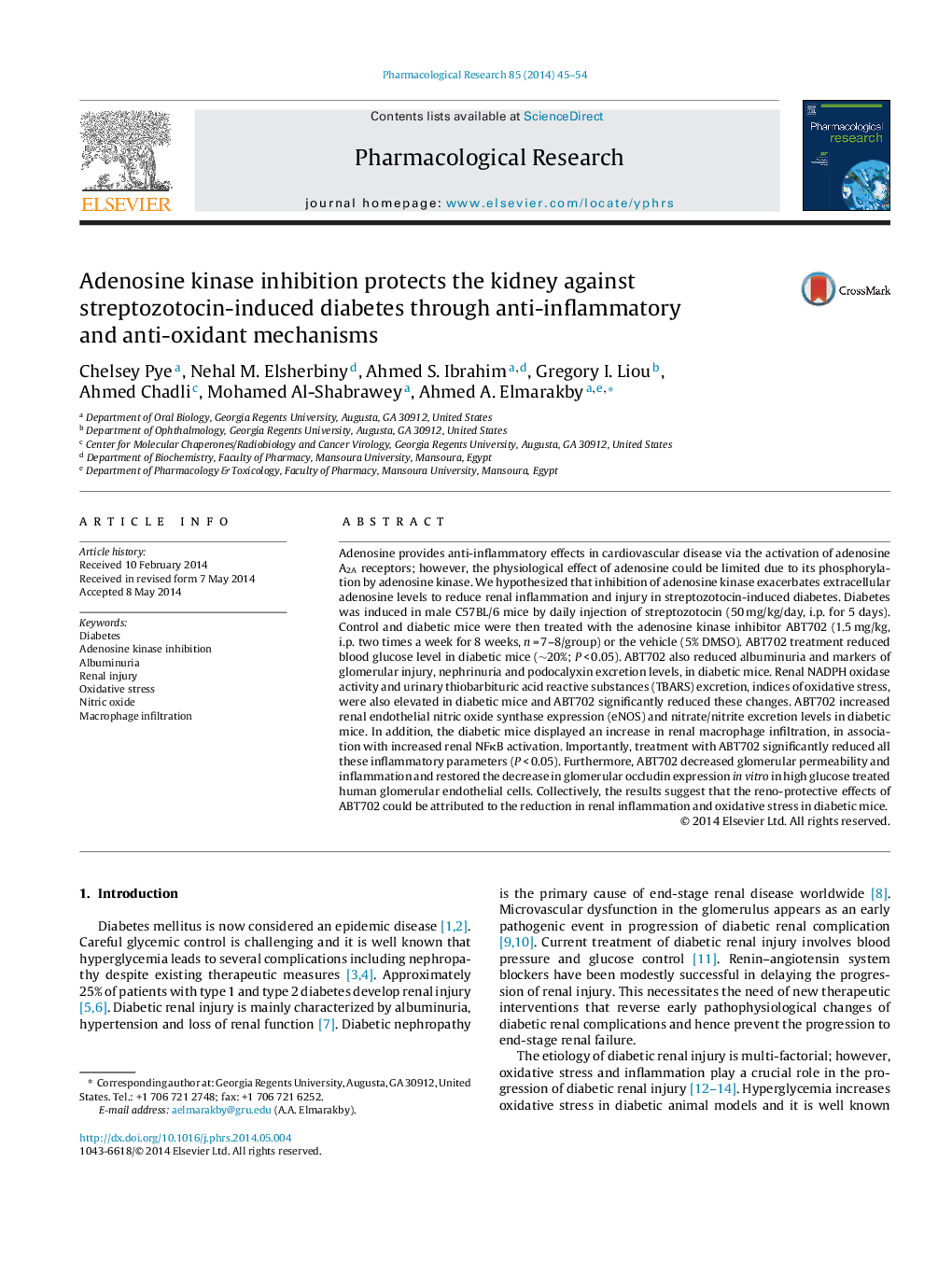| کد مقاله | کد نشریه | سال انتشار | مقاله انگلیسی | نسخه تمام متن |
|---|---|---|---|---|
| 2561227 | 1560854 | 2014 | 10 صفحه PDF | دانلود رایگان |
Adenosine provides anti-inflammatory effects in cardiovascular disease via the activation of adenosine A2A receptors; however, the physiological effect of adenosine could be limited due to its phosphorylation by adenosine kinase. We hypothesized that inhibition of adenosine kinase exacerbates extracellular adenosine levels to reduce renal inflammation and injury in streptozotocin-induced diabetes. Diabetes was induced in male C57BL/6 mice by daily injection of streptozotocin (50 mg/kg/day, i.p. for 5 days). Control and diabetic mice were then treated with the adenosine kinase inhibitor ABT702 (1.5 mg/kg, i.p. two times a week for 8 weeks, n = 7–8/group) or the vehicle (5% DMSO). ABT702 treatment reduced blood glucose level in diabetic mice (∼20%; P < 0.05). ABT702 also reduced albuminuria and markers of glomerular injury, nephrinuria and podocalyxin excretion levels, in diabetic mice. Renal NADPH oxidase activity and urinary thiobarbituric acid reactive substances (TBARS) excretion, indices of oxidative stress, were also elevated in diabetic mice and ABT702 significantly reduced these changes. ABT702 increased renal endothelial nitric oxide synthase expression (eNOS) and nitrate/nitrite excretion levels in diabetic mice. In addition, the diabetic mice displayed an increase in renal macrophage infiltration, in association with increased renal NFκB activation. Importantly, treatment with ABT702 significantly reduced all these inflammatory parameters (P < 0.05). Furthermore, ABT702 decreased glomerular permeability and inflammation and restored the decrease in glomerular occludin expression in vitro in high glucose treated human glomerular endothelial cells. Collectively, the results suggest that the reno-protective effects of ABT702 could be attributed to the reduction in renal inflammation and oxidative stress in diabetic mice.
Figure optionsDownload high-quality image (90 K)Download as PowerPoint slide
Journal: Pharmacological Research - Volume 85, July 2014, Pages 45–54
